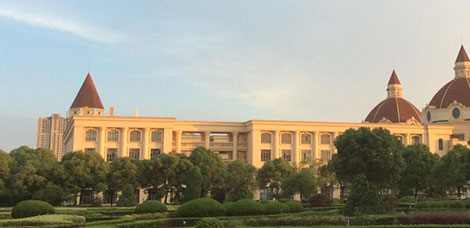
English Language Proficiency
Applicants must have a good command of English, with one of the following: TOEFL IBT (internet based) test result of at least 80 points, TOEFL (computer based) test result of at least 213 points, TOEFL (paper based) test result of at least 550 points, or IELTS test result of at least 6.0. This requirement does not apply to an applicant who has studied for at least two years at, or received a degree from an English speaking high school, college, or university.
Applicants with IELTS between 4.5 and 6.0 or equivalent may be admitted conditionally. Conditional students will be required to pass an Entrance Examination in English.
Application Qualifications
Applications are open to non-Chinese citizens with reliable financial support and stability who are university graduates with a completed bachelor’s degree (transcript required) and in good health.

Curriculum
|
Language and Basic Courses (9 credits) |
Chinese
Language (Level 1, Level 2) An
Introduction to China |
|
GJC Core Courses (three courses, 4 credits) |
Mass Communication
Theory Research
Methods and Applications |
|
Core Courses for Chinese Media &
Global Journalism (four courses, 8 credits) |
International
News Reporting History of
Global Journalism Globalization,
Social Development & Media Culture and
Media in China |
|
Core Courses for Global Communication (four courses, 8 credits) |
Global
Public Opinion and Chinese Media Globalization,
Social Development & Media New Media
and Society Media and
International Issues |
|
Core Courses for Global Advertising (four courses, 8 credits) |
Marketing
Communications International
Advertising Social
Media Marketing New Media
and Society |
|
GJC Electives (four courses, 8 credits) |
Students
can take any English language courses either from School of Journalism and Communication
or from other schools of the university. |
|
Media Project |
Internship
or academic activities (2 credits) |
|
MA Thesis |
Total Courses required: 31 credits |
Program Overview
The M.A. program in Global Journalism and Communication is the first of its kind in China and targets foreign students from overseas. You will study the impact of globalization on journalism, communication, politics, economy, culture and society at the School of Journalism and Communication, SISU, one of the pioneers in global journalism teaching, global media practices and studies on global communication as well as global advertising and marketing practices in China.
The program enables you to experience the changing landscape of global media and global communication perspectives in this world cosmopolitan of Shanghai. You will have access to scholars, experts, media professionals and corporate practitioners in global media, new technology, global communication studies and advertising and marketing spheres.
The program has three core modules in Chinese Media & Global Journalism, Global Communication, and Global Advertising, and can offer a master’s degree in journalism, communication, and advertising respectively.
Aiming to develop you intellectually as well as enhance you professionally, the program provides a strong all-round package that teaches you practical journalistic skills, prepare you to write rigorous, responsible journalism in the global sphere, help you communicate effectively in China and your home countries for global entrepreneurship in terms of global media studies, public relations, global advertising and marketing issues. You can examine and participate in the process of global content creation and distribution and develop your understanding of the role of strategy and planning, based on practices in China. You can learn how to communicate strategically for business and cultural purposes and think more critically, by tapping into the sphere of global journalism and communication and by finally involving yourself in the global advertising and marketing practices in the global corporations based in Shanghai.
This program is a two-year program. Most students can finish taking all the courses in the first year and do internship and prepare MA thesis in the second year.











